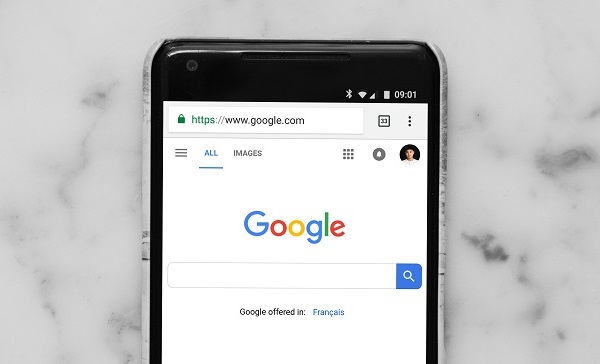Google Algorithm Updates Impacting your Search Results

The trick in every update is that they lean toward bettering the user experience to give the users of Google the best possible results for their searches.
Without utmost consideration for Google updates, you may realize a drop in the position of your site on SERP. That said, consider also the fact that most of your target audience are probably using Google search engine.
Your digital marketing team must learn all there is to Google algorithmic updates. Here are several of the updates that always have an impact on your search results:

From developing integrations to strategic support, from creating creative concepts to optimizing results.
Google Panda
Do you ever wonder what would happen if you started sharing low-quality material? Obviously, you can start expecting a slower traffic flow than usual, along with low rankings for targeted keywords.
Google Panda is an update that evaluates all websites based on the quality of the material they share. The web pages with very high-quality material get a reward of a higher rank position than others. In the same way, low quality is penalized with low ranking positions.
To trigger Google panda, the checkpointsare usually:
- Thin content – thin content does not necessarily provide useful andexplicit responses to address the needs of the searcher. Ideally, when yourmaterial does not conclusively respond to the query in hand, then it is thincontent.
- Valueless material – when your content does not inform, entertain, provokeemotion or thought, then, is it really relevant to the audience? When userscannot trust your site as a helpful source of information, then you cananticipate a very low-rankposition on Google’s SERP.
- Duplicate content – Google Panda regards duplicate content as copied materialthat only scatters the internet with chunks of copied text. With images andvideos, you can maneuver without Google panda terming your work as duplicate.With text, however, you need to be cautious. Any material that can be foundanywhere on the internet, even within your web pages, will attract you a lowerranking based on Google’s algorithm.
- Article spinning – like with duplicate content, article spinning will rewardyou with a lower ranking. Some website owners try to avoid duplication ofmaterial by spinning the articles in a different way. Unfortunately, part ofhaving a high-quality piece of the article includes originality, which lacks inarticle spinning.
Google Penguin
If you have escaped Google Panda just alright, watch out for Google Penguin. This update evaluates websites based on their link-building profiles. Technically, backlinks should affect your search rankings positively. However, it only depends on how you do it.
Website owners get caught up in the idea of adding several links on their web pages, quickly forgetting that quality matters quite as much as quantity does. For one, all the backlinks on your site must be related to the content on your web pages. Other than that, legit backlinks need to point your website to trustworthy sources, not dubious ones.
If Google penguin finds that your sources are nothing related to your niche industry, topic or content, then you will attract a hit for your search rankings.
Some of the triggers from Google Penguininclude:
- Buying links – this is in violation of the guidelines of Google Webmaster.The good thing is that there are better ways to earn links other than buyingthem. For one, you can engage in a lot of guest blogging. Target websites inthe same industry as you. You can also co-host events and partner with otherbusiness owners to merit link exchanges.
- Lack of anchor text diversity – the anchor text diversity in your material isabout having different texts to which you embed your links. Technically, havingthe same text all through for your anchors is what makes Google feel like it ismanipulated to rank your website higher. Instead of a proper ranking, you getpenalized.
- Low-quality links – be keen and a little picky with where you get your linksfrom. Much as you do not have a lot of control over the quality of otherpeople’s site, you can control what gets to your site. Audit and verify thatthe websites you are seeking to get links from share valuable material thatyour visitors will also stand to benefit from.
- Keyword stuffing – strange as it may seem. Keyword stuffing is scooped out byGoogle Penguin, along withpoorly-written anchor texts. As you do your keyword research, the attempts youmake in finding the best words to befit your text should align with the needsfor diversity. It is why most SEO experts recommend the use of Google suggestto come up with other related terms that can help with having differentkeywords to use. Ensure that all the keywords and anchor texts you use in yourcopy have a natural flow to encourage readability. Remember that this remains aprimary concern even for coming up with quality content for your targetaudience.
Google pigeon
Surprisingly, local SEO matters to Google more than website owners may know. Google ranks a website respective of the location of the business, and the distance from the user. Technically, you cannot do much to bring your target audience closer to the location of your business. However, you can be more deliberate with targeting people in your location.
Even with paid SEO and ads, there is a way to schedule them for an audience that is locally close to your business’s location. The best way possible is by using keywords that are locally targeted. For example, if you are talking about buying sunglasses, ensure you include the location of your business in the primary keywords as in the example below:
Summer sunglasses in New York.
Other than that, your content creation strategy should incorporate your location. The texts, images, and videos you use should strongly associate with your region. If you use memes, for example, make the humor in them relevant to the audience in your location.
Get your target local audience highlyengaged with your material. Ask for positive reviews from your local customers,along with testimonials that you can host on your website. All these are areasthat Google bots will crawl in determining your rank position for matters oflocal SEO.
If you have not done it yet, make sure you have submitted your business to local listings. For this one, be consistent with the information you provide so that it is uniform across the board, and people can find your business with ease. (NAP – name, address, phone number).
Google Hummingbird
The Google hummingbird is technically one to analyze your website based on artificial intelligence. It differs from penguin and panda because it does not directly change how your website gets ranked. However, it does check to ensure that your site is as relevant to the user as possible. This means that your site is analyzed in regard to user intent. For every query searched on Google search, there is a literal meaning and the intended meaning that is behind the queries.
Google hummingbird specializes in finding sites that are most qualified for the searched terms. This means that your keyword research strategy should nail it right. Thoroughly research in the subject you want to write about. Make sure you understand what the audience really wants to know. It helps to use long-tail keywords because they are more descriptive and will be more valuable to the user. Ensure that you find semantic search friendly keyword and phrases.
Pro tip
Google suggest will give you the best search terms. Just type in the seed keyword, and check out the ‘related results’ to find the keywords that most people are looking for online.
Google mobile-friendly update
The user experience involved in using a small screen matter a lot to Google. The mobile users accessing the internet today have far much surpassed the desktop audience. Since this realization, Google has been firm on the user experience for mobile users.
An ideal site should have prime consideration for the mobile audience first, and the desktop users second. According to this algorithmic update, the speed, responsiveness, theme, and navigability of your site matters. Since the mobile users have a way smaller screen to use than desktop users, the adjustments you make must make the usability of your site better than before. This means that you may have to give into getting an entirely different website theme for your mobile site.
Remember that mobile-first indexing is also a ranking factor. It does not mean that Google will only index your mobile site for the SERP, but rather that the mobile results appear first before the desktop results. Among the issues to consider include:
- Large font – visitorsshould not struggle reading content from their small screens.
- Non-intrusive site – with intrusive pop-up ads and prompts, you quickly decreasethe user experience for your site.
- Loading speed– mobile users are the least tolerant with slow loading sites than those usinga PC. Aim for at most 3 seconds as the load time for your web pages.
A lot of what you do in SEO must be intentional, more especially when dealing with frequent Google algorithm updates. Visit this page and learn how you can align your keyword strategy with these updates for a better ranking.